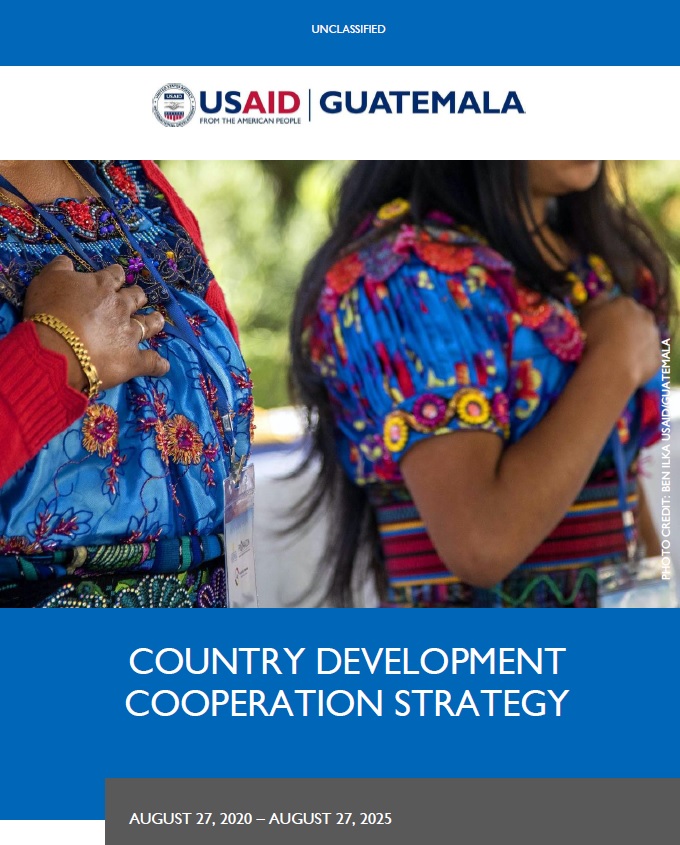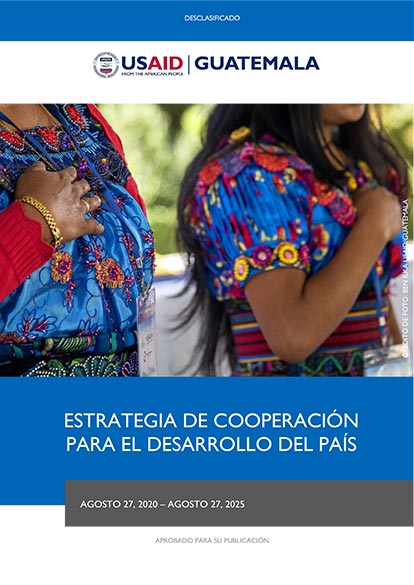Speeches Shim
USAID’s goal for the 2020-2025 strategy is to advance Guatemala’s self-reliance by connecting indigenous peoples, women, and youth to opportunities that enable them to achieve prosperous, secure, and dignified lives at home in Guatemala. Under this strategy, USAID/Guatemala will:
- Redefine its relationship with the Government of Guatemala (GOG)
- Refine USAID/Guatemala’s strategic, geographic and demographic focus
- Evolve its development model to employ new strategic approaches.
USAID will pursue substantive partnerships with the government, where feasible, and other key Guatemalan stakeholders, including civil society, and the private sector, to redefine our development approach and increase our impact.
USAID/Guatemala’s Country Development Cooperation Strategy (CDCS) 2020-2025 seeks to address the systemic development challenges which underpin Guatemalans’ decisions to illegally immigrate to the United States, while simultaneously deterring illegal immigration in the short-term. Core areas that influence the decision to migrate include lack of economic opportunity, insecurity, and inadequate access to basic services. In terms of Guatemala’s long-term development, and its Journey to Self-Reliance, it is imperative that the Guatemalan government can address these challenges. USAID will address illegal immigration to the United States by partnering with stakeholders to increase opportunities for Guatemalans in the areas that exhibit the highest levels of out-migration, which correspond to the areas with weakest state presence and lowest levels of economic development.
In terms of the Journey to Self-Reliance Roadmap, Guatemala ranks comparatively well in both the areas of country commitment and capacity. These factors suggest an opportunity for USAID programs to have a significant impact in moving Guatemala towards self-reliance.
There are two significant strategic shifts in the strategy:
- First, the strategy has a demographic focus on indigenous peoples, women, and youth. This focus aligns with the national security imperative of decreasing illegal immigration and addressing significant inequities in development outcomes. For Guatemala to progress on its Journey to Self-Reliance, these groups must be empowered and prepared to meaningfully advocate and contribute to political processes, the economy and society more broadly.
- The second strategic shift is an emphasis on partnerships. Beyond increasing partnerships with private sector entities, the Mission will embrace co-creation with government and non-governmental organizations across the country. Rather than arriving with solutions, USAID will work to develop a shared understanding of the challenge, understand partner priorities and available resources, and work as allies to address the challenge. This new approach is captured in USAID/Guatemala’s new Indigenous Engagement Strategy, which articulates a model of engagement through partnership rather than that of a donor/beneficiary. The Mission anticipates this shift in approach to partnerships--with indigenous and non-indigenous organizations alike-- will improve the overall impact of our programming.




Comment
Make a general inquiry or suggest an improvement.